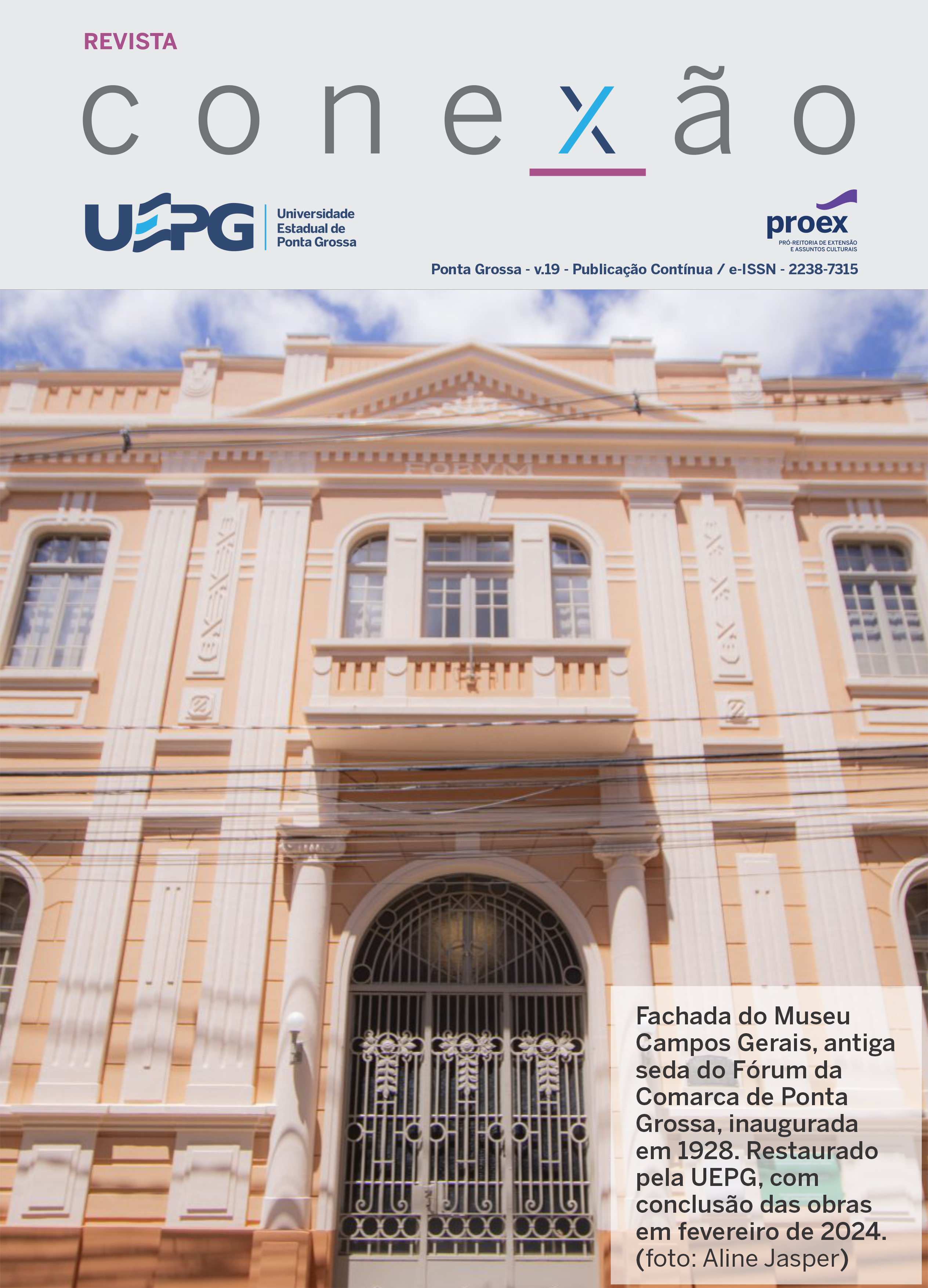CAPACITAÇÃO DE PRODUTORES DE CACAU DE VÁRZEA: IMPACTOS PARA O DESENVOLVIMENTO SUSTENTÁVEL E NA QUALIDADE DAS AMÊNDOAS DE CACAU EM UMA COMUNIDADE RIBEIRINHA DO RIO MOJU, PARÁ
DOI:
https://doi.org/10.5212/Rev.Conexao.v.20.23240.005Resumen
O cacaueiro (Theobroma cacao L.) é uma planta originária da floresta tropical úmida americana, que produz o cacau, matéria-prima essencial na fabricação do chocolate. Desde 2017, o estado do Pará se destaca como o maior produtor de amêndoas de cacau no Brasil, especialmente as cultivadas no ecossistema de várzea. Este artigo tem como objetivo avaliar os impactos da capacitação de produtores de cacau para o desenvolvimento sustentável em uma comunidade ribeirinha do rio Moju como parte do programa de extensão intitulado “Capacitação dos Ribeirinhos para Implementar os Processos de Fermentação e Secagem das Sementes e Controle de Qualidade das Amêndoas para Valorização do Cacau Várzea”. Foram empregados métodos de capacitação teórico-práticos, junto com análises laboratoriais das amêndoas antes e após o treinamento. Os resultados indicam que a capacitação é fundamental para a produção de amêndoas de melhor qualidade, com potencial para gerar empregos, aumentar a renda e diversificar a produção ribeirinha.
Palavras-chave: Cacau de várzea; Sustentabilidade rural; Bioeconomia.
Descargas
Descargas
Publicado
Número
Sección
Licencia

Esta obra está bajo una licencia internacional Creative Commons Atribución 4.0.
a) Os autores mantêm os direitos autorais e concedem à revista o direito de primeira publicação, com o trabalho simultaneamente licenciado sob a Creative Commons Attribution License que permite o compartilhamento do trabalho com reconhecimento da sua autoria e publicação inicial nesta revista.
b) Ao submeter um artigo à Revista Conexão UEPG e tê-lo aprovado os autores concordam em ceder, sem remuneração, os seguintes direitos à Revista: os direitos de primeira publicação e a permissão para que a Revista redistribua esse artigo e seus metadados aos serviços de indexação e referência que seus editores julguem apropriados.
c) Os leitores são livres para transferir, imprimir e utilizar os artigos publicados na Revista, desde que haja sempre menção explícita ao(s) autor (es) e à Revista Conexão UEPG e que não haja qualquer alteração no trabalho original. Qualquer outro uso dos textos precisa ser aprovado pelo(s) autor (es) e pela Revista.

Este obra está licenciado com uma Licença Creative Commons Atribuição 4.0 Internacional.





